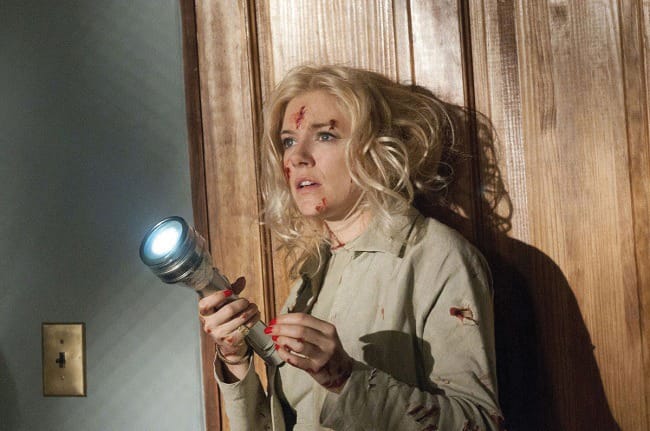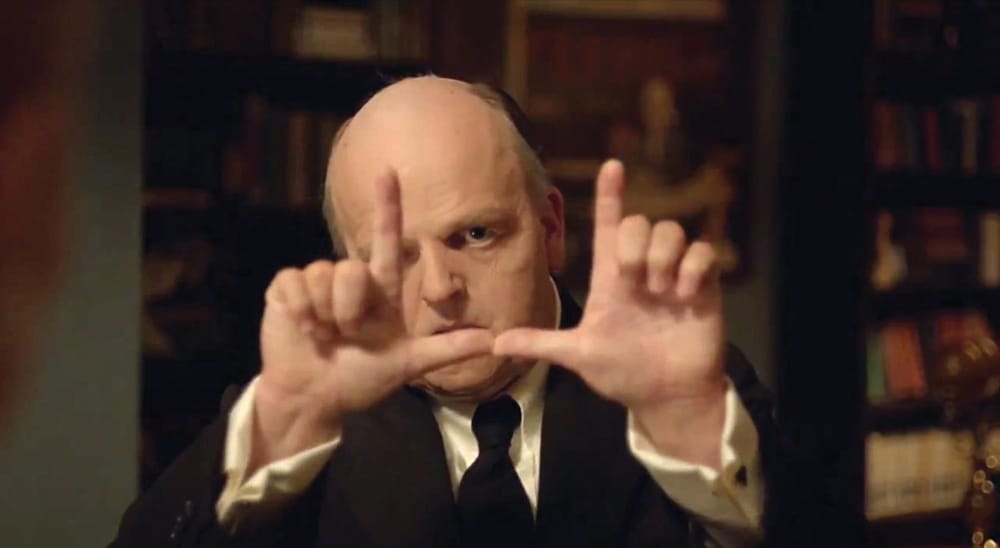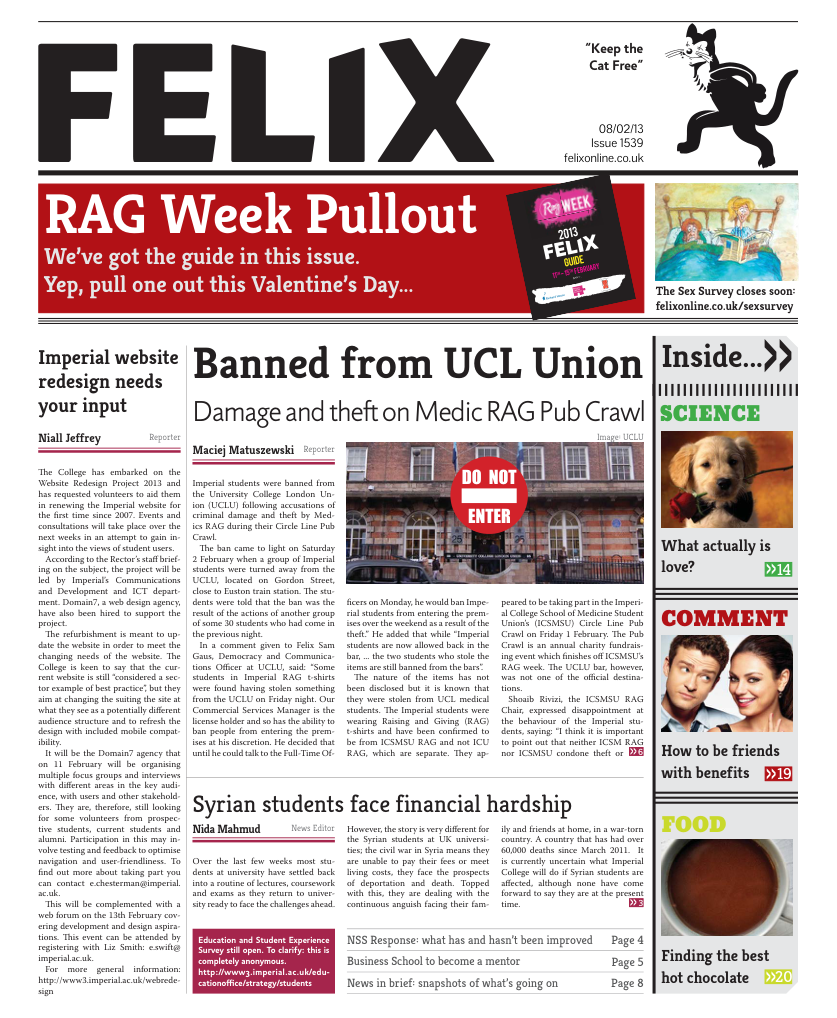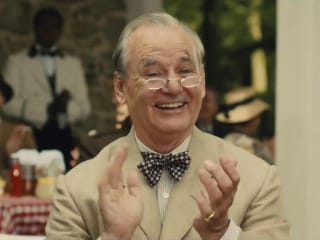What a HitchCOCK
Only two stars for The Girl from John Park

Tippi Hedren is not in the least bit inhibited when it comes to talking about the relationship she had with director Alfred Hitchcock. Starring in two of his films The Birds and Marnie, Hedren got the first-hand experienceof the eccentric director, and claims she was subjected to continuous harsh, unfair treatment and cruelty under a genius, brilliant director who had a rather unhealthy obsession for the rising starlet. These claims, of course, come years after his death, after Hedren spoke warmly of the director whilst he was receiving his American Film Institute’s Lifetime Achievement Award, claims that have also been refuted by other actresses (Kim Novak, Eva Marie Saint) who had also worked closely with him. So the degree of authenticity of her accusations is difficult to judge no doubt, but there is also a believable amount of substance here to make for a potentially intriguing movie. That there were no sexual harassment laws back in the day to protect working actresses supposedly prevented Hedren from taking much action. And here is what should be described as a partially fictionalised account of how Hedren became but ultimately declined the role of becoming Hitchcock’s next “Girl.”
Hedren (Miller) is barely starting out in the industry when she catches the eyes of Hitchcock (Jones) and he is immediately captivated by her looks and her potential to become the next big star in his films. Her screen-test is successful, and her overnight stardom appears to be well underway. And despite her very limited experience in the acting industry (she had a successful modelling career prior to this move), Hitchcock personally takes her under his wing, with the young beauty experiencing all sorts of glittering benefits of being tied to one of the most influential figures in Hollywood. But it becomes all too clear soon enough that his interest in her is not entirely an innocent one.
As Hitchcock’s infatuation moves past the long stares, he swiftly decides to quite literally throw himself onto the vulnerable actress. She manages to fend him off when he puts his predatory moves on her in a car, an action that deeply upsets and troubles her. But with a daughter to support, her chance to become a big star, and also at the kindly advice of Hitchcock’s secretary Peggy Robertson (Wilton), she decides to forget about the incident and soldier on. A small sacrifice to pay it seems, for a guaranteed future. But his approach becomes more and more direct as time goes by, and becomes challenging to cope with. He even tells her directly that in exchange for being under exclusive contract with the director, she needs to obey his commands. It all seems ludicrously one-sided but hey, Tippi Hedren insists things like this were commonplace in the film industry back in the day.
With repeated rejections Hitchcock resorts to even sneakier, slier and more despicable methods to get back at his young blonde obsession. The film in production, The Birds, requires its lead actress, Hedren, to be attacked repeatedly by vicious birds. And Hedren is given assurance that these birds will be mechanical and that the set will be a safe environment. So imagine her surprise when she discovers that real birds in cages are being prepped to be set free to fly all over the actress. Even worse, Hitchcock requests for several days of the same take, leaving Hedren exhausted and traumatised. Not getting what he wants, he resorts to bullying her, physically and emotionally.
Played by the steely determined Miller, Hedren was right to be pleased with the casting of the actress to play her. She starts off as the innocent and naïve woman whose dream has come true thanks to a timely Diet Coke advert, but her quiet, persistent strength shows in her necessary coldness towards her legendary director, fearing the possibility of an end to her short-lived career, but also holding onto her dignity. She possesses the beauty and icy glamour of the actress in the 1960s, and comfortably settles into the lavish background atmosphere that has been impeccably set up for her by the technical team.

For someone portrayed in such a negative light, Jones tries to bring out as much sympathy in his character as possible. Essentially his character boils down to being a sex-crazed maniac who pines for his leading ladies; inappropriately and relentlessly pursuing relationships with them. And yet there is almost a child-like fascination and curiosity in his eyes as he never gives up chasing the things he cannot have. His interactions with his wife Alma (Staunton) are briefly glossed over, and a sub-plot involves how the long-suffering wife decides to take off for a few days after a particularly bad episode in their marriage; this is when he realises that in fact, without his wife, his life is quite meaningless. It is in these brief moments of weaknesses that the audience can feel sympathy towards the otherwise very much unlikable director. The feeling never lasts long, but those scenes to come.
It all sets up to become a nice little piece of television soap drama set in the 60s, where we would also get the recreation of some of the famous scenes of Hitchcock’s fascinating The Birds. The main problem here, however, is quite simply how lifeless and dull everything feels. The film has already done a tremendous job in finding the right cast members to play the big names, but when it comes to telling the story, it feels muddled and confused, never quite establishing a convincing enough link between its characters. It feels oddly detached, and moves at such a dreary pace that it becomes difficult to maintain any sense of serious drama or any tension in the narrative. It’s a relatively short film too, and yet it still struggles to engage with the viewers on any level.
Forget about the one-sided view argument. Yes, we’ll probably never know the real truth behind what actually happened on the sets and what Hitchcock’s true motivations and desires were, but this still could have made for a fun, trashy television movie. The Girl doesn’t even come close to being that. Instead what we have here is a film more interested in relishing in its artistic side, trying to make everything look pretty and authentic. And on that front the film succeeds – but it’s a real shame that style takes over substance a few too many times to tell a coherent story.
The Girl is available on DVD.








